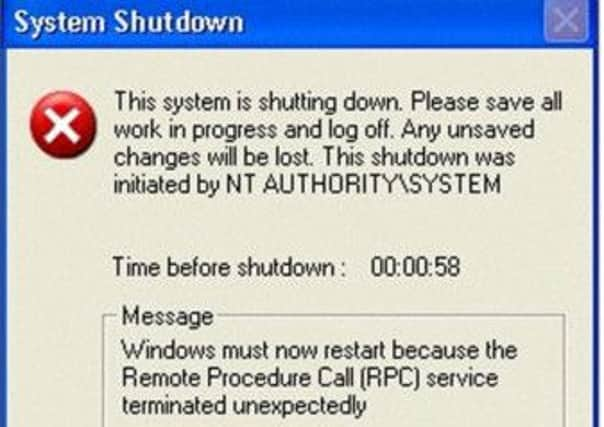Tech Talk: The protection racket


THERE are many rackets on the internet, and anti-virus software – the one thing that’s supposed to protect you from them – is really no better. Adopting a business model that would have made Al Capone envious, these programs work on the principle that if you pay the vendors some money – and keep paying – they will keep you safe from unspecified threats.
The fact is that there are completely free apps which are as good, if not better.
Advertisement
Hide AdAdvertisement
Hide AdKeeping computer viruses at bay obviously makes sense, because there are lots out there. These range from hidden programs that can wipe your data to the far more common “trojans” which lurk within ordinary files and trick you into installing bogus or malicious software. Every computer connected to the internet is vulnerable to these, as well as to “phishing” emails which try to trick you into handing over your bank details.
Yet, for all that, the idea of paying an annual fee to keep yourself safe is plain daft – and the premium-rate programs are often more trouble than the free ones, sprouting endless “nag” screens to remind you that they’re there.
So, here are some alternatives that won’t cost you a penny.
Microsoft is not known for giving its software away, but Security Essentials is an exception and, so long as you have an original copy of Windows installed, it’s the most effective and least onerous way of keeping malware at bay. If you schedule it to scan your PC at pre-set intervals you can set it and forget it; it won’t bother you unless it finds something untoward.
Avast! 8, Avira Antivir and AVG Free are all credible competitors. Their websites may try to persuade you to install paid-for “premium” versions, but the free ones should serve you fine.
Advertisement
Hide AdAdvertisement
Hide AdPaid-for packages like McAfee and Kaspersky are also free to banking customers of MBNA and Barclays.
Whichever app you choose, it’s your responsibility to keep it updated. Generally, the programs update themselves automatically but they often don’t scan your computer until you tell them to. The best programs check not only files on your hard drive but also emails and web pages – so you’ll be as well protected as if you’d paid someone to do it.